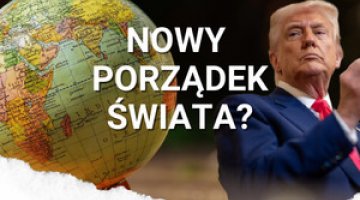Germany: the case of Navalny and Nord Stream 2
On 2nd September the German government officially confirmed that a banned chemical substance from the Novichok group had been used in the attempt to assassinate Russian opposition leader, Alexei Navalny. Chancellor Angela Merkel called on the Russian government to investigate the circumstances of this incident. The findings presented by the German government have provoked a discussion about a response to the situation, both at the bilateral and EU levels, and the reaction will be dependent on the Kremlin’s further position on it. The ongoing debate has been focused on the demands regarding the Nord Stream 2 gas pipeline (NS2).
The decisive impulse for the direction of the discussion about the future of Nord Stream 2 in the context of the Navalny case was provided by statements made by Norbert Röttgen. Röttgen, the Chairman of the Bundestag Foreign Affairs Committee and also a candidate for the CDU leadership, has been critical of this investment. He called for a tougher course in relations with Russia. In Röttgen’s opinion, purchases of gas should be used as an element of putting pressure on President Vladimir Putin. Röttgen has demanded a common EU policy to be pursued towards Russia and that putting a halt to the NS2 project would be an element which would ensure that the policy has severe implications for the Kremlin. In his assessment, continuing with the investment will be interpreted by Putin as a definitive confirmation that he can pursue his policy without any sanctions from EU countries.
Following the ongoing debate and Russia’s reactions to it, it may be observed that the positions held within the German government regarding linking the Navalny case with the future of NS2 are gradually becoming more flexible. On 28th August Chancellor Merkel opted for treating the question of the gas pipeline separately to contentious issues in relations with Russia. Peter Altmaier, the Minister for Economic Affairs and Energy, who is in favour of the NS2 project, defended it on 3rd September during a videoconference with members of the European Parliament Committee on International Trade, while criticising US sanctions imposed on the investment. However, on 5th-6th September Heiko Maas, the Minister of Foreign Affairs, did not rule out linking the two issues and demanded closer co-operation from Russia ‘in the coming days’ in order to investigate the attempt on Navalny’s life. Maas pointed out that the lack of co-operation might be interpreted as being disadvantageous to Russia. He was against ruling out the option of rethinking the NS2 project and outlined its benefits and the potential costs of imposing restrictions. Annegret Kramp-Karrenbauer, the Minister of Defence, signalled she was open to using NS2 as an element of pressure and brought up the issue of the security interests of the Central and Eastern European countries. Jens Spahn, the Minister of Health, was also in favour of making the further position on the NS2 pipeline contingent on the Kremlin’s stance. On 7th September the spokesperson for the German government announced that the chancellor did not wish to rule out any option, as was the position of the Foreign Minister. The spokesperson also reiterated that possible repercussions were being consulted with Germany’s EU partners.
Despite mounting criticism of Russia in the German ruling coalition parties, support for NS2 remains dominant. However, the growing weight of the issue has been reflected by the fact that candidates for the CDU leadership have taken their positions on it. Following Röttgen’s initiative, Friedrich Merz has demanded an two-year moratorium to the NS2 construction. That time would be used to gradually decrease Europe’s dependence on imports of fossil fuels from Russia. The third candidate, Armin Laschet – the Minister-President of the state of North Rhine-Westphalia – has warned against hasty decisions about the gas pipeline. In the CDU there is a prevailing conviction that the Baltic gas pipelines, a troublesome legacy of Gerhard Schröder, are necessary during the energy transformation.
Markus Söder, the leader of the CDU’s sister party, the CSU, and the Minister-President of Bavaria, has expressed his aversion to the use of economic sanctions in the case of Navalny. He pointed to the private-economic character of the NS2 project. He admitted, however, that in the current circumstances it is difficult to present the investment in a positive light. Another voice at the level of the German states (co)-ruled by the CDU, Michael Kretschmer, the Minister-President of Saxony, also stated he wants the NS2 gas pipeline to be completed.
The SPD has traditionally defended NS2. Norbert Walter-Borjans, the co-leader of the SPD, has expressed his regret regarding the ‘competition for ideas for sanctions’. Nils Schmid, the SPD parliamentary group's spokesperson for Foreign Affairs has ruled out ‘strategic partnership’ with Russia at present. However, Schmid expressed scepticism by stating that resorting to oil and gas to this end is a double-edged sword. Rolf Mützenich, the chairman of the SPD parliamentary group in the Bundestag, has argued that in the energy policy other suppliers also raise moral doubts in terms of the values they hold. Manuela Schwesig, the Minister-President of Mecklenburg-Vorpommern is also firmly in favour of finishing the construction of the NS2 gas pipeline, as is Dietmar Woidke, the Minister-President of Brandenburg.
It is the Green Party that has taken the most radical stance on NS2 as the party members have been consistently criticising the project on the grounds of climate policy. There are also demands within the party to deal a strong blow to the assets of the representatives of the Russian regime which have been accumulated in the West. The Greens MEPs have also been instrumental in applying pressure on the EU institutions in order to ensure an international investigation into the use of the banned chemical substance. The FDP has also revised its position on NS2—the party’s leading politicians have demanded a suspension to construction work until the incident has been investigated.
The Left Party and the AfD are against any restrictions involving NS2.
Commentary
- The ongoing debate on NS2 has been marked by an unprecedented degree of criticism of the investment, which is visible both in statements made by politicians and the media coverage. The construction of the pipeline is regarded as a political error, and the narrative to date which has focused on the economic character of the NS2 project has been challenged. Difficulties in pursuing foreign policy in co-operation with Germany’s EU partners, which have resulted from pushing the investment through, are increasingly mentioned.
- Now that it has taken over the treatment of Navalny, conducted examinations and taken a clear stance on the use of the Novichok agent, the German government finds itself under pressure regarding undertaking further measures. Chancellor Merkel placed her authority at stake when on 2nd September she called on Russia to co-operate on the case. Germany’s passivity in the face of Russia’s lack of co-operation will be more difficult to justify also within the country. For Germany it is essential to agree a joint response within the EU. This is motivated, in the first place, by the wish to mitigate the bilateral dimension of tensions which have been mounting in its relations with Russia. Agreeing a joint EU reaction would also contribute to strengthening the EU’s capacity to act in the international arena and this is the long-term goal of Germany’s politics.
- The US sanctions regarding NS2 and the plans to make them tougher have an important impact on the ongoing discussion in Germany. Some commentators argue that the Navalny case provides a useful pretext to abandon a controversial project whose completion has now been called into question due to the US restrictions. In the debate it is also claimed that a withdrawal from the investment would mean (at least in image and reputation terms) a concession to the US and could possibly contribute to the re-election of Donald Trump. That interpretation has fallen on a fertile ground in the public debate in Germany due to widespread scepticism regarding the current US administration.





